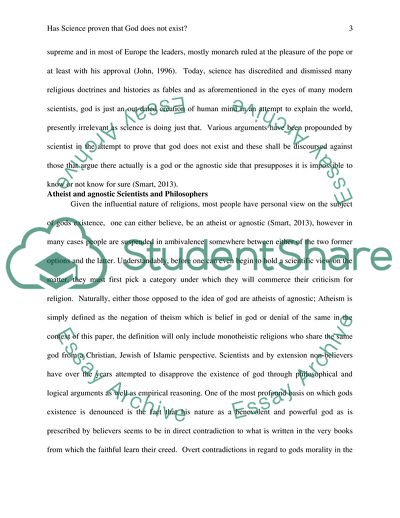Cite this document
(The Stalemate between Science and Religion Essay Example | Topics and Well Written Essays - 3000 words, n.d.)
The Stalemate between Science and Religion Essay Example | Topics and Well Written Essays - 3000 words. https://studentshare.org/religion-and-theology/1816764-science-meets-religion-title-has-science-proven-that-god-does-not-exist
The Stalemate between Science and Religion Essay Example | Topics and Well Written Essays - 3000 words. https://studentshare.org/religion-and-theology/1816764-science-meets-religion-title-has-science-proven-that-god-does-not-exist
(The Stalemate Between Science and Religion Essay Example | Topics and Well Written Essays - 3000 Words)
The Stalemate Between Science and Religion Essay Example | Topics and Well Written Essays - 3000 Words. https://studentshare.org/religion-and-theology/1816764-science-meets-religion-title-has-science-proven-that-god-does-not-exist.
The Stalemate Between Science and Religion Essay Example | Topics and Well Written Essays - 3000 Words. https://studentshare.org/religion-and-theology/1816764-science-meets-religion-title-has-science-proven-that-god-does-not-exist.
“The Stalemate Between Science and Religion Essay Example | Topics and Well Written Essays - 3000 Words”. https://studentshare.org/religion-and-theology/1816764-science-meets-religion-title-has-science-proven-that-god-does-not-exist.


